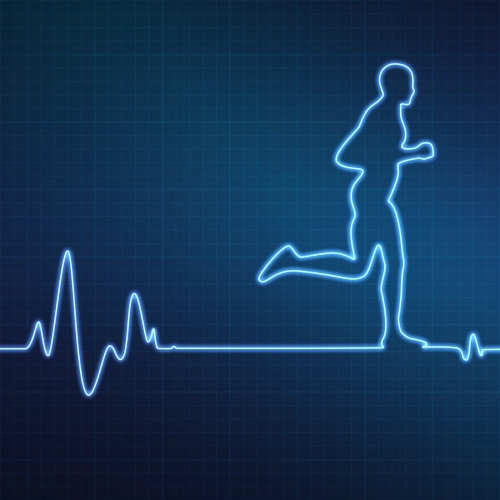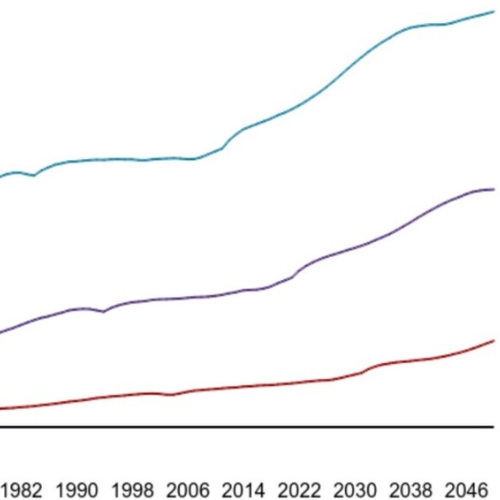The human body is an incredible machine, capable of feats that were once thought impossible. In 1954, Roger Bannister shocked the world by breaking the 4-minute mile barrier, a record that many believed was beyond human capability. Seventy years later, we're learning that Bannister's legacy extends beyond the track – it might have given those elite athletes a longer life.
The Exclusive Sub-4 Club
When Bannister crossed the finish line at Oxford University's Iffley Road stadium in 3 minutes and 59.4 seconds, he didn't just set a new record; he opened a door to what seemed like the impossible. Since then, over 1,750 athletes have joined the elite "Sub-4 Minute Mile Club," each pushing the boundaries of what we thought the human body could achieve. Now, a fascinating new study has revealed a surprising connection between running a sub-4 minute mile and longevity. By analyzing data from the first 200 athletes to accomplish this extraordinary feat, researchers found that these runners live an average of 4.7 years longer than the general population.Pushing Limits, Extending Life?
The study's findings challenge a long-standing debate about the potential dangers of extreme exercise. This debate centers on the idea that while moderate exercise is beneficial, excessive physical activity might harm health. The widely accepted view is that regular moderate exercise, such as walking or light jogging, provides numerous health benefits. These benefits include improved cardiovascular health, better mental well-being, and reduced risk of chronic diseases. However, some researchers and health professionals have worried that extreme exercise, characterized by high intensity and long durations, could be detrimental. This concern arises from evidence suggesting a U-shaped relationship between exercise and health. In this model, both too little and too much exercise can increase the risk of adverse health outcomes. The middle ground, where moderate exercise lies, is considered the safest and most beneficial for longevity and overall health. The risks associated with extreme exercise include potential damage to the heart and other organs. For example, intense endurance activities like marathons or triathlons can lead to acute increases in cardiac biomarkers, indicating stress on the heart. Over time, these stresses might result in structural changes to the heart muscle, reduced heart function, and even increased risk of cardiac events.
Rethinking the risks and rewards
Despite these concerns, the study on sub-4 minute mile runners presents a different perspective. It suggests that pushing the body to its limits, at least in the context of running, may not have the harmful effects previously thought. Instead, the study found that these elite runners lived longer than the general population. The findings indicate that the intense training and physical demands required to break the 4-minute barrier might contribute to increased longevity.
This challenges the notion that extreme exercise is inherently dangerous. It suggests that the benefits of high-intensity training, such as enhanced cardiovascular fitness and metabolic health, might outweigh the potential risks. Additionally, elite athletes may have other lifestyle factors, such as healthy diets and favorable genetics, contributing to their extended lifespans.
The idea that there's a "sweet spot" for exercise has been around for a while. The so-called "U-shaped hypothesis" suggests that both too little and too much exercise could increase your risk of dying. But the sub-4 minute mile study throws a wrench in this theory, showing that extreme endurance doesn't always equal a shorter lifespan.
Why Are Sub-4 Milers Living Longer?
So, what's the secret behind these runners' extended lifespans? The answer likely lies in the intense training they undergo to achieve their incredible speed. This training doesn't just make them faster; it also seems to supercharge their cardiovascular health, metabolism, and immune systems. Interestingly, the study also found that many sub-4 minute milers share certain genetic traits. In fact, 20 sets of brothers – including six sets of twins – and several father-son pairs are among the first 200 members of the Sub-4 Minute Mile Club. Take the Ingebritsen brothers from Norway, for example. Jakob Ingebritsen joined the club at the astonishing age of 16! This suggests that genetics might play a role in both running ability and longevity.Future research
While the study offers valuable insights, it's not without its limitations. Researchers weren't able to determine the exact causes of death for many of the runners, which could provide more clues about the link between running and longevity. Additionally, they didn't have access to information about the athletes' lifelong exercise habits and health behaviors. Did they continue to exercise intensely after their sub-4 minute mile, or did they switch to a more moderate routine? These are questions that future studies will need to explore. The study of sub-4 minute milers offers a compelling look at the potential benefits of extreme endurance exercise. These runners didn't just break a barrier; they might have rewritten the rules of aging. Their extraordinary accomplishments remind us that the human body is capable of incredible things, and that pushing our limits – in the right way – can lead to a longer, healthier life.The study was carried out by Stephen Foulkes and team from University of Alberta. It is published in the British journal of sports medicine.






